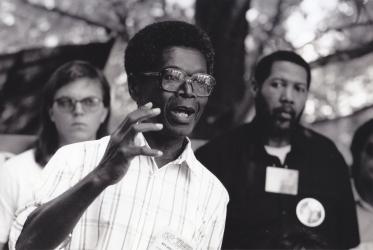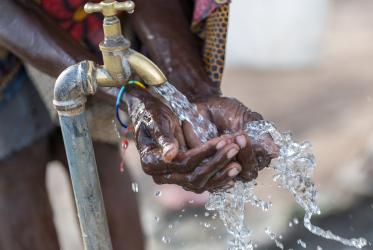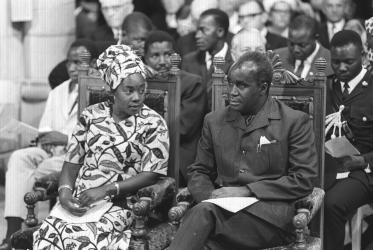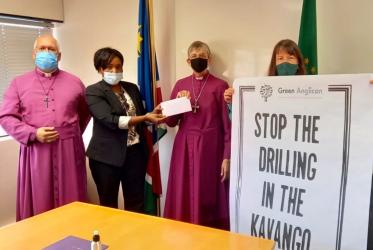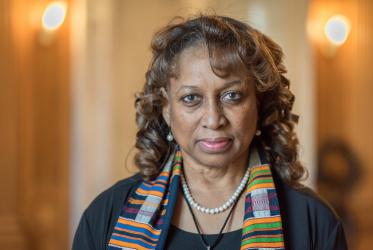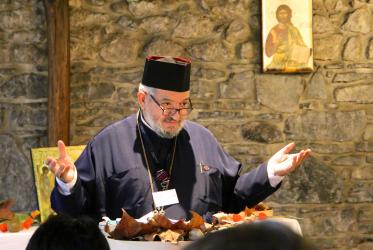Displaying 1 - 20 of 140
WCC institute encouraged rethinking theology
23 November 2023
Pandemic and pedagogy: what are the valuable lessons?
21 December 2022
Theological education in Africa promotes social transformation
03 November 2022
WCC leaders recall life-changing experiences from early days
10 February 2022
Protecting Ethiopia’s church forests
27 October 2021
South Sudanese Churches shelter populations displaced by floods
23 September 2021
New student body at Bossey Ecumenical Institute “a source of joy”
14 September 2020

